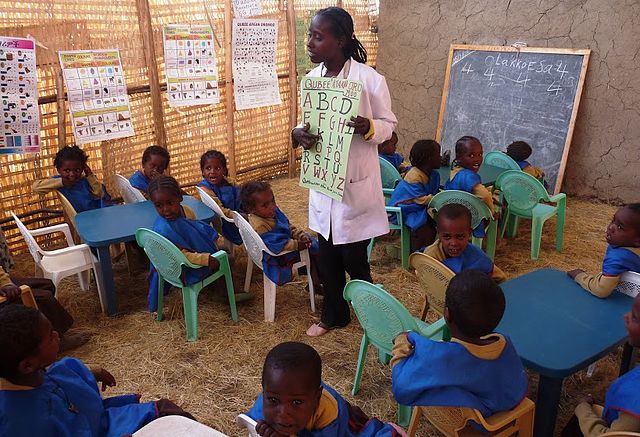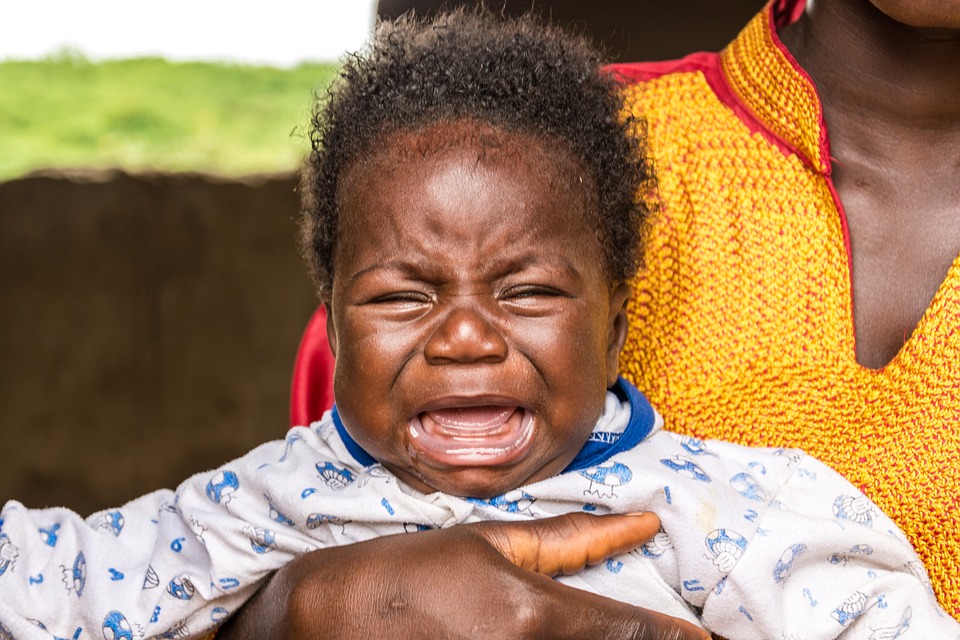
Foundational skills, such as literacy, provide critical scaffolding for young people and are a prerequisite for numeracy, problem solving, and socio-emotional skills. Helping young people develop these skills makes economic sense. Unskilled workers are forced into unemployment or are stuck in unstable low-wage jobs that offer little career mobility or growth. As they age, they become increasingly vulnerable to job losses and labor market shocks.
The results are devastating on a national level as well. Low skills reduce labor force productivity and make investment less attractive, decreasing the transfer of technology and “know-how” from high-income countries. Low skills also perpetuate poverty and inequality because the private sector can’t flourish in a country that doesn’t have a skilled workforce to sustain it.

In spite of progress made over the last two decades, more than 820 million people still suffer from chronic hunger. Meanwhile other forms of malnutrition are also on the rise: overweight and obesity, associated with the development of a significant surge in diet-related non-communicable diseases, affect almost four in ten adults worldwide. At the same time, more than two billion people suffer from various micronutrient deficiencies. This shows that, despite a stronger political commitment, investments and policies are not being fully effective in fighting hunger and malnutrition and are not reaching some population groups.

Despite the efforts of humanitarian organizations to provide orphans with and a decent living environment for orphans, the number of orphans continues to grow. The SAHFA Association has therefore committed itself, thanks to the help provided by its volunteers and partnerss, to support some orphanages through donations in cash and in kind.
The countries concerned at the moment are Benin, Côte d'Ivoire, Nigeria and Togo.

Farmers facing up to most common obstacles as: abject poverty, poor technology, unfavorable deals with farmers by dealers in input markets, water scarcity, land degradation and climate change issues. Indeed, the farmers are very poor which leads to poor life styles and inadequate money to invest on farms. This results in poor returns from the farming and vicious circle continues. Modern agriculture is a knowledge based art now. But farmers are stuck with old ways and input of technology is meager. This is partly due to traditional thinking patterns and partly due to poor linkages with technology generation and dissemination centers. Affluent farmers, small in number, can fast approach and adapt to emerging technologies. Unfavorable deals with farmers by dealers in input markets and the mandis where farmers dispose farm products. Inputs are often adulterated and expensive.

Water covers 70% of our planet, and it is easy to think that it will always be plentiful. However, freshwater—the stuff we drink, bathe in, irrigate our farm fields with—is incredibly rare. Only 3% of the world’s water is fresh water, and two-thirds of that is tucked away in frozen glaciers or otherwise unavailable for our use. As a result, some 1.1 billion people worldwide lack access to water, and a total of 2.7 billion find water scarce for at least one month of the year. Inadequate sanitation is also a problem for 2.4 billion people—they are exposed to diseases, such as cholera and typhoid fever, and other water-borne illnesses. Two million people, mostly children, die each year from diarrheal diseases alone. Many of the water systems that keep ecosystems thriving and feed a growing human population have become stressed. Rivers, lakes and aquifers are drying up or becoming too polluted to use. More than half the world’s wetlands have disappeared. Agriculture consumes more water than any other source and wastes much of that through inefficiencies. Climate change is altering patterns of weather and water around the world, causing shortages and droughts in some areas and floods in others.

Global warming is caused by the harmful actions of individuals and industries towards the environment. Their actions cause environmental pollution, which disrupts the global ecological system. SAHFA is committed to taking action to preserve the environment in order to guarantee a better future for next generations. The SAHFA Association is therefore taking part in activities such as Eco Running, pending the organisation of our own activities related to environmental protection.

Hunger and food insecurity above all are expressions of poverty and most of the world’s poor live in rural areas. That’s why ending rural poverty is at the heart of SAHFA's work. Although progress has been made in reducing poverty globally, about 736 million people continue to live in extreme poverty and inequalities are still pervasive.
